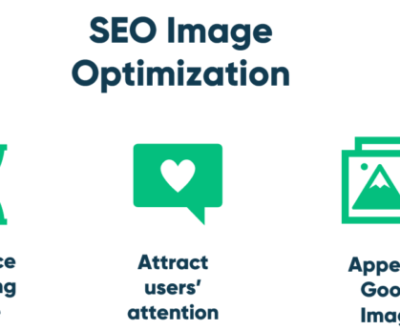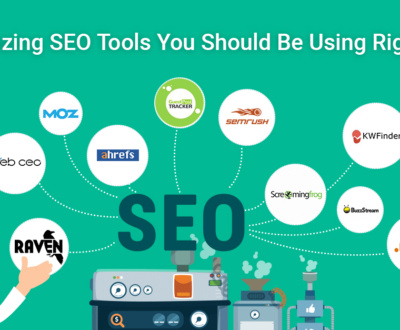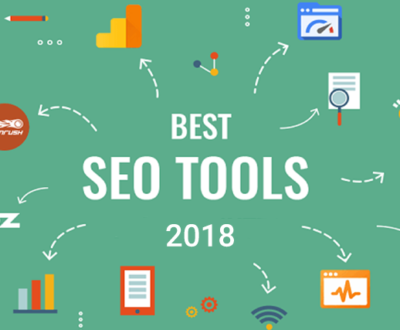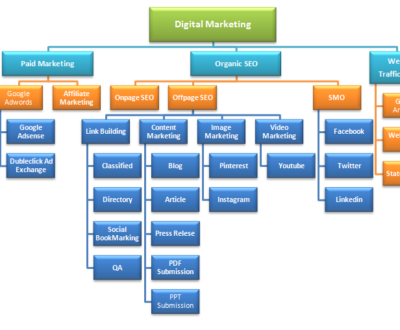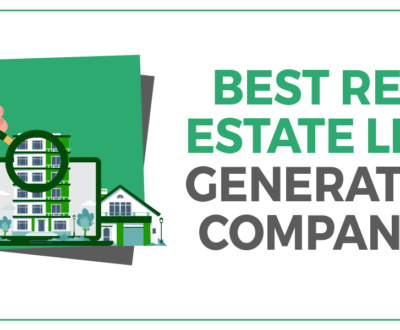Google is known to be effective in finding the companies that are most compatible with what local people are looking for. The company is constantly improving local search algorithms that determine where companies can be found in local search results.
Why is Google constantly improving its search algorithms?
At a high level, the company wants to prioritize quality content that brings value to its users. It’s not enough to use tactics like keyword filling – and that’s a good thing for all site users. The Google Local Search Algorithm determines the local search rankings based on Google My Business (GMB) listings. These Google public business listings contain local business information that matches your search queries. The higher a company ranks, the more likely a searcher is to click on their listing on a search engine results page (SERP). In addition, these local searches always lead to the Google 3-Pack – the top three organic search results displayed next to the map and visible on your smartphone without scrolling.

Google phone screenshot in 3 packs
It is impossible to identify all the factors in Google’s local search algorithm – Google hides the details under lock and key. However, we know that local search is closely related to three key elements: proximity, relevance, and prominence.
1 – Kaduol
Search proximity is the number one factor in Google’s local search listings.
Google is wise enough that a search engine derives a local intent, even though it doesn’t include “with me” in its query. Google also adjusts the results based on whether the search query includes a place in the search query. For example, “Best Pizza with Deep Dish in Downtown Chicago” will show results for Chicago, even if the search is in New York. It is important to note that the search results are almost seamless and depend on the other modifiers included in the search in their query. For example, Google will only list companies with four or more stars if the search contains the “best” qualification.
Given the changing nature of near search, it is important to understand how to assess “relevance” and “significance.” We all look outside the business, perhaps a restaurant, to view their reviews or browse their menu, and we know that the business we park outside is not the first result on the list. This is because relevance and importance factors are also taken into account.
2 – Relevance
Google is smart. If someone searches for a local business category, the search engine will offer the most relevant content. Modifiers like “best”, “open now” and “vegan options” will change Google 3-Pack results – the top three organic search results.
Google defines relevance as how well a local business profile matches a search query – for example, when a particular company sells or has the properties that the search query is looking for. In order for a company to make a relevant list, it must carefully consider the following:
- Local list of categories and attributes.
- Local side signal
- Social contributions and answers to online reviews
- Local categories and features
The Google My Business category in your business list and attributes affect your relevance search for nearby searches. How well you complete your profile will affect your final relevance score and determine which companies will appear in the Google 3-Pack.
Attributes such as “free Wi-Fi” or “pick-up on the side” eliminate businesses without these attributes. Google’s local search algorithm can also expand the scope of its placement to find relevant companies that best match the qualifications and attributes of the search query.
To achieve a high relevancy score, it’s important to maintain complete and accurate information on all your listing sites, such as Google, Yelp, Bing, and Nextdoor. Search engines crawl local relevancy signals and insert the information they find on the site into a general relevancy tag. Category selection – There are almost 4000 categories in GMB. You can select one main category and up to ten categories in total. Google rates your top category when determining your ranking. Select the category that best suits your business – the more relevant, the better – by following these steps:
Be specific about reducing the number of companies you can compete with.
There are a small number of categories in Google My Business that describe your business. The more categories you select, the less impact each category will have on your rankings.
Describe your business, not your services or facilities. For example, if you have a salon, a “manicure” is a service, not a description of the company.
Attribute Selection – Selects the attributes associated with your Google My Business category. Attributes are features of your business that people can search for, such as free Wi-Fi, transportation, children’s menus, and more. Google maintains a list of GMB attributes.
Local side signal
Another important aspect of your local digital presence is the website or website. If you have a business with multiple branches, it’s important to create separate local pages for each branch that contain all the details that customers need to find and contact you.
Focus on local site keywords that matter –
Take the time to research your keywords before creating a local business website. Find keywords that are highly relevant to what you have to offer, such as keywords that are often used with great intent. Skip the jargon and focus on the customer’s perspective – think like them when a problem arises. For example, a Mexican restaurant may optimize for keywords such as ‘Mexican restaurant’ or ‘tacos near me.’ “Mexican black beans” may not be so loud – users looking for this question are probably more interested in recipes or food than restaurants.
Keywords with local intent
Content localization – The best practice is to localize content on your website. Using the name of your city here and there can be effective. You can also create content about your local area. Focus on connecting what’s happening locally with your business. Also consider using photos taken from your actual location. Many smartphones automatically tag photos with the latitude and longitude where the photo was taken. These geotags are searched by search engines to help verify local relevance.
Optimizing for signals on a page Google’s local search algorithm not only checks to see if your site is providing relevant content, but also to ensure that it has the correct page signals. Optimize your site by incorporating good formatting and keywords into elements such as:
- Headlines
- Meta descriptions
- Caption tags
- Image tags
Captions – In the early days of SEO, Google relied heavily on captions on sites that the webmaster described as H1, H2, and so on. Today, the local search algorithm is ripe to the point where it can identify a well-organized, untitled site.
At a webmaster meeting, Google’s chief trend analyst for webmasters, John Muller, said: “Your site can run perfectly without H1 tags or with five H1 tags.”
However, as a very good SEO practice, use headlines to make sure your content is rich and well-organized. Google preferred pages with a clear structure, and Moz recommends using large headers, whether you use headers or not.

Meta descriptions and tags – An important factor of a site to consider is the tags in your site’s code. Metadata descriptions – Metadata descriptions are hand-made pieces of text that form part of website code. It appears under the title tag of organic search results. Well-written meta descriptions include keywords that entice searchers to click.
Name tags – Name tags are an important aspect of organic evaluation. Make sure you include keywords such as geographic location naturally in your name tags – they don’t contain keywords or strength. Image Tags – Image tags with relevant keywords and attributes can help improve your local search rankings. It also helps record geo-tagging and Exchangeable Image File (EXIF) data, keeping in mind that images created with a smartphone or smart device always automatically add geotags.
Online reviews and social signals
Google tracks reviews when determining relevancy, so the more reviews you can be sure of the products and services you know, the better. Don’t forget to ask for reviews from satisfied and loyal customers.
A good example of this is when the qualities the searcher is looking for are based on customer insight, such as “the best sushi”. When a customer searches for the “best sushi”, the search result not only attracts four-star and more sushi restaurants, but also leads to reviews that use the word “best sushi sushi” in the reviewers’ comments to find the most relevant search results. . Reviews and social signals
While there are discussions about whether keywords in ranking responses are included in Google’s relevancy algorithm in determining relevancy, it doesn’t hurt to add keywords to ranking responses that will give customers prominence or highlight them. reviewer’s point. When a customer leaves a comment like “The best sushi in Phoenix is going down!” For example, we might say, “We’re glad you enjoyed it – we’re proud to bring you the best Phoenix sushi with the highest quality seafood.” If you also post on local social networks, include your top keywords in all posts.
3 – Prominent
Google defines prominence by how good a company looks and how popular it is in the local market. Factors such as reviews and citation numbers – the number of quality lists – affect importance.
View volume and business answers
The more ratings and positive reviews a company has, the higher the company’s ranking in local search. Google considers a number of factors relevant to reviews, including:
- Number of reviews and average star rating.
- Business response rate (how many reviews are rated by the company)
Review signals account for 15 percent of Google’s local search engine ranking factors. The total number of ratings and the average star rating in each location are important because they are a strong indicator of dominance in the local market, but just as important and often overlooked is the response of the review to the store.
Reading and responding to reviews online is one of the best ways to increase your reputation. Even the slightest difference in response rate between you and your nearest competitor can make the difference between you or their location visible in the Google 3-Pack.
In principle, you must respond to all checks. But it can be a complete job – eWeb Services is a viable solution for intelligent automation. Features like Automated Review Response for non-star reviews, which make up about 50% of all reviews, can be a huge time saver. And as you scale and collect reviews more often, automation will grow with you.
Volume citation
Local offers include any online listing of the name, address, and telephone number of the local business. Offers are displayed on websites, applications, social platforms and business directories such as Yelp and Better Business Bureau. Companies with higher citations ranked higher in the local search rankings. Google analyzes the number of citations, along with other factors, to determine if the company has high authority. You don’t have much control over how your business appears in directories, but most online directories and aggregators mean that this task takes time.
You can pay for a listing service that links your business to hundreds of directories, but Google has moved to the point where accurate listings in several key directories are more likely to affect your search engine rankings. . EWeb Services uses a targeted, automated approach to checking and maintaining the most important web map lists. Improving Local Search Results with eWeb Services Improving your local search engine rankings seems like a daunting task, but if you have control over the many factors that can affect your rankings on search engine results pages, you can:
- Select the most relevant categories and attributes for your business
- Make sure the folder lists are accurate and complete
- Respond to customer reviews regularly
When it comes to local search, it is important to state every detail correctly. Come today to find out how eWeb Services can connect with SEO experts who can help you control the visibility of your local search.
About us and this blog
We are a digital marketing company with a focus on helping our customers achieve great results across several key areas.
Request a free quote
We offer professional SEO services that help websites increase their organic search score drastically in order to compete for the highest rankings even when it comes to highly competitive keywords.
Subscribe to our newsletter!
More from our blog
See all postsRecent Posts
- What are Web Stories and their importance? July 30, 2022
- What are Paid Ads and Advantages of Paid Ads? July 29, 2022
- How Web 2.0 is Different from the Web 3.0? July 28, 2022


